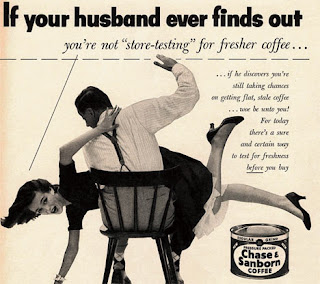The Scopes Trial: The case John Scopes v. the state, in which he was accused for teaching evolution in a public high school. It was important in American history because it simbolized the conflict back then between science and theology.
Prohibition (The 18th Amendment): The period around the 1920s in which it was illegal to manufacture and sell alcohol in the United States. This amendment was nearly impossible to be enforced and therefore was repealed. This was a time in which people broke the law, and was characterized by gangsters, flappers, and speakeasies.
Flappers: Younger women of the 1920s that caused major controversy because they dressed "revealing", drinked, smoked, and basically acted the opposite of what was then considered as acceptable behavior for women.
Economic Issues (1920s): There were several economic issues during the 1920s which primarily led to the Great Depression in the 1930s. People were consuming over board, which raised inflation and workers weren't now earning enough money to pay the high prices. Income taxes were being the lowest for the richest people. Credit cards were introduced. Banks were loaning at low interest rates. In 1929 the stock market crashed and all the economy's weaknesses became clear.
Dust Bowl: A period of severe dust storms which lasted about 16 years. It was caused by drought and mechanization; with the use of new technology people planted more and didn't allow for the soil to recover. It affected, ecologically and agriculturally, many American and Canadian prairie lands.
Agricultural Issues: Agriculture became increasingly mechanized with the use of the tractor, other heavy equipment, and new techniques. Overproduction led to decrease in prices which led to dull market conditions and living standards for farmers. Hundreds of farmers had borrowed loans to buy neighboring properties and now weren't able to pay such high debts.
Immigration Policies (1920s): In 1921 total immigration was limited to about 350,000 per year, with immigration from each country limited, per year, to 3 percent of all nationals from the country who were already living in the United States. The system was made permanent with the National Origins Act of 1924. The object of the law was to favor certain kinds of immigrants and to keep out others (more from Europe and Asians were totally excluded).
Navitism: The presence of people from different cultures, with different languages and different religions produced feelings of hostility toward immigrants.
Significant Literary Works (1920s): A few books that defined this time period were:
The Ways of White Folks - by Langston Hughes. It was the first book written by an African American that talked about his feelings towards the white. This book was published during the Harlem Rennaissance.
The Great Gatsby - by F. Scott Fitzgerald. The American dream that anyone can achieve anything
The New Negro - by Alain Locke - A hopeful look at the African Americans in America
The Waste Land - by T.S. Eliot - Criticism of the modern world's loss of personal, moral, and spiritual values.
The Great Migration: The movement of about 2 million African Americans out of the Southern United States to the North. They were looking to escape racism and find new job opportunities.
Harlem Renaissance: A flowering of African American cultural and intellectual life following the Great Migration. It took place primarily in New York City. African Americans celebrated their pride, dignity and creativity, and found new ways to explore art (literature, drama, music, visual art, dance).
Sacco and Vanzetti: Italian anarchists who were convicted of murdering two men during an armed robbery in Massachusetts. They were executed on August 23, 1927, but there was still a dispute of whether they were innocent or not.
Labor Issues (1920s): During the 1920s the labor force grew significantly. Many people were in need of jobs and the ones who were employed weren't earning enough. However, there was a rise in women's job opportunities. Decrease in foreign immigration also affected the economy during this time.
The Red Scare: A strong period of Anti-Communism in the United States. It was mainly about socialist revolution and political radicalism.
Schneck v. the United States: Charles Schneck was arrested for printing, distributing, and mailing 15,000 leaflets to prospective military draftees during WWI. The Court ruled with the current Espionage Act of 1917 and stated that men did not have the right of free speech openly oppose to the draft.


